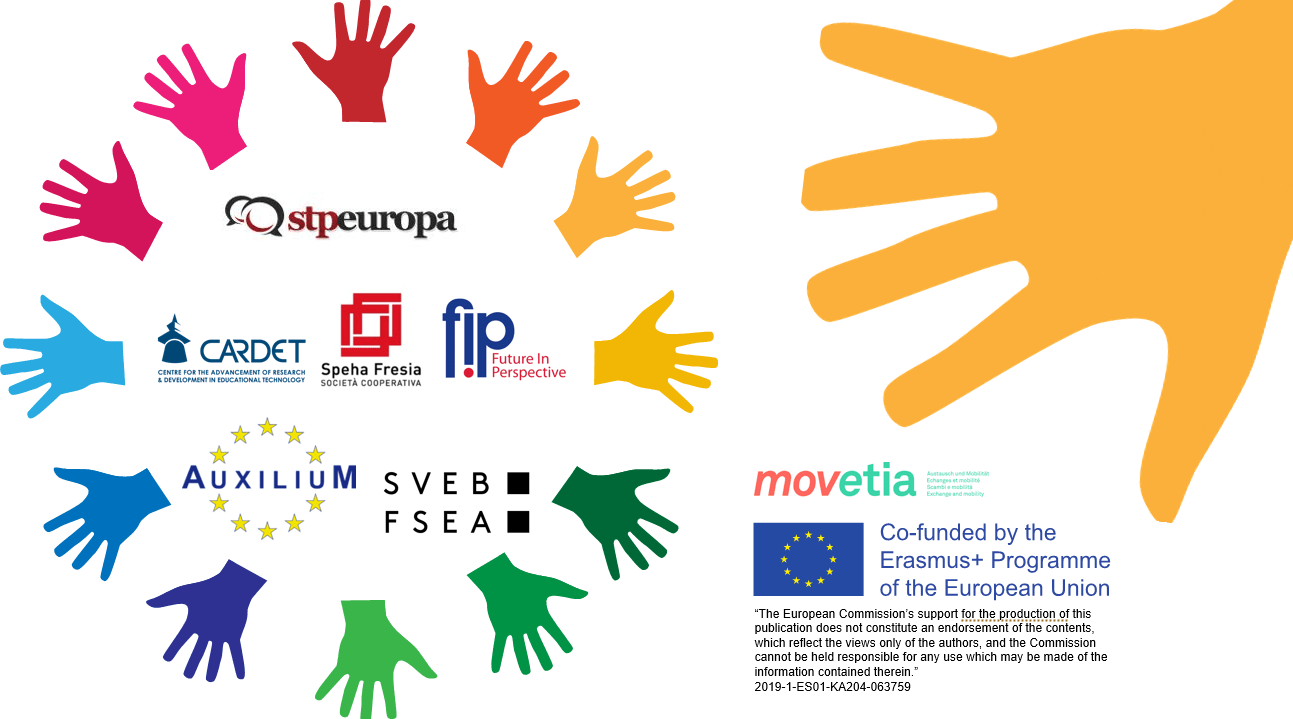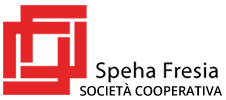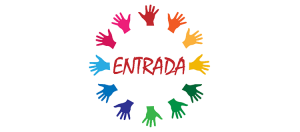Project Info
Project Description
Leading Partner
STP Consulting di Zaragoza (Spagna)
Partners
CARDET, CY
Future in Perspective, IE
Auxilium pro Regionibus
Europae in Rebus
Culturalibus, AT
Associate Partner
Consultative body for the Integration of Foreign Citizens of the VII District of Rome
Project
During the second half of the twentieth century, all Western European states became countries of immigration and permanent settlement. Due to a number of circumstances – income inequalities between countries, processes of economic integration and labour market shortages in host countries – immigration will remain an important feature in these, and increasingly all, European countries. The reality is that immigration has become a ‘normal’ part of life in Europe. The choice for Member States moving forward is not whether to stop immigration, but how to channel it to its own advantage and enhance integration in host countries.
Immigration can significantly contribute to employment, growth and prosperity in Europe. In an era of population ageing, the continued in-migration of people is essential to sustaining European economy and society. While normal levels of migrant growth are sustainable and in fact necessary to sustain Europe’s business model in the present economic circumstances achieving the necessary levels of civic, social and economic integration of the migrant populations is a real challenge and one that is not being successfully overcome.
There is a real need for innovation where fostering the integration of host and migrant communities is concerned in all EU Member States and the project responds to the challenge of creating a fair and equitable society which is at the core of the EU 2020 strategy. The project will build on existing migrant integration measures and look at how harnessing the latest technologies to promote WebQuest learning can accelerate the migrant integration process. The proposed model is being developed and piloted in 5 very different EU Member States and this will help to ensure that the processes and outputs are robust and have considerable potential transferability to other countries.
Migrant communities are by definition mobile and the EC Action Plan (2016) on the integration of third country nationals recognises the need to harness the potential of technology, social media and the Internet at all stages of the integration process. ENTRADA aims to harness the potential for learning within migrant communities that comes with ‘always-on – always-accessible’ mobile technology platforms, however, partners are of the opinion that the project will only achieve its objectives if bespoke, online learning resources are provided. Challenge-based approaches like WebQuests provide the perfect framework for developing innovative learning resources that will be appealing and accessible for migrants.
Target groups
Adult trainers and educators, social workers engaged in the labour and social inclusion of foreign citizens.
Intellectual Ouputs
There are 4 intellectual outputs planned over the 24 month duration of the project as follows:
IO1 – Online WebQuest Integration Resources – a suite of 36 WebQuests to build key competences to support the civic, social and economic integration of migrants.
IO2 – In-service Training Programme – a comprehensive intervention to support the continuous professional development of adult education and migrant support staff.
IO3 – Online Platform – an online learning platform designed for a range of fixed and mobile devices.
IO4 – Policy Paper – a series of thought provoking policy recommendations based on the experiences of the ENTRADA consortium and its stakeholders.
Have a look to our updates through the project newsletters:
ENTRADA_Newsletter_02_April 2020_EN
ENTRADA_Newsletter_03_December 2020_EN
Entrada is co-funded by the Spanish National Agency under the Erasmus+ Programme


